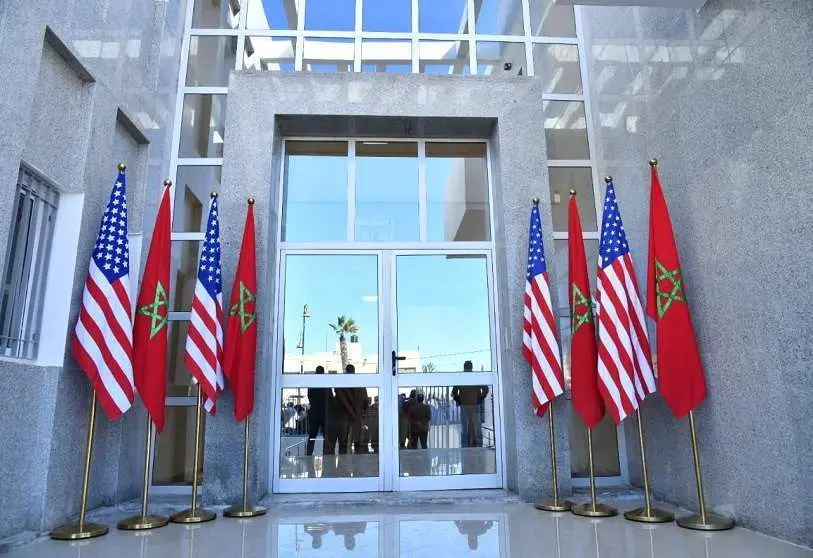On Western Sahara: Will Morocco Foot the Bill for New U.S. Consulate in Dakhla?

During the first term of the Trump Administration, the U.S. Government mediated the establishment of full diplomatic relations between Israel and Morocco. To secure that deal, the U.S. Government made a couple of formal commitments to Morocco
One has already been fulfilled. Back in 2020, President Donald Trump officially recognized the sovereignty of Morocco over Western Sahara. The other has not. The U.S. Government has yet to open a U.S. consulate in Dakhla.
In the second term of the Trump Administration, there are powerful reasons for the U.S. Government to finally follow through on that commitment:
- Reciprocity: The external environment of Morocco is highly ambiguous, turbulent, and uncertain. The failure to open a U.S. consulate in Dakhla would provide Morocco with valid reasons for backtracking on its own commitments in future contingencies.
- Trustworthiness: The Trump Administration reportedly wants to expand the Abraham Accords beyond Bahrain, Morocco, Sudan, and the United Arab Emirates. The failure to establish a U.S. consulate in Dakhla would likely undermine the persuasiveness of the U.S. Government as a mediator in those potential negotiations.
- Domestic Politics: The Abraham Accords have been hailed as a historic achievement of the Trump Administration to the American people. The failure to fulfill related commitments is likely to carry significant domestic political implications as a result.
- Power Projection: The regional posture of the U.S. Government has diminished as a result of changes in the external environment across Western Africa. A U.S. consulate in Dakhla would provide a valuable platform for projecting power into the Sahel and beyond.
At the same time, there are powerful reasons that pull in the opposite direction. For the Trump Administration, the most important is:
- Cost: The Trump Administration is implementing massive reductions in non-defense discretionary spending, and the establishment of a U.S. consulate in Dakhla could require a significant expenditure of non-defense discretionary spending. That expresses incoherence.
For these reasons, it seems reasonable to expect that the realization of a U.S. consulate in Dakhla will depend heavily on whether there are U.S. allies (e.g., Israel; Morocco) who are willing and able to cover the associated costs.
Michael Walsh is a Senior Fellow at the Foreign Policy Research Institute (United States), Visiting Researcher at the University of Granada (Spain), Visiting Research Fellow at LMU Munich (Germany), and Affiliated Researcher at the Georgetown School of Foreign Service (United States).
Article published on Consilium Strategicum Newsletter. africanstudies.substack.com


